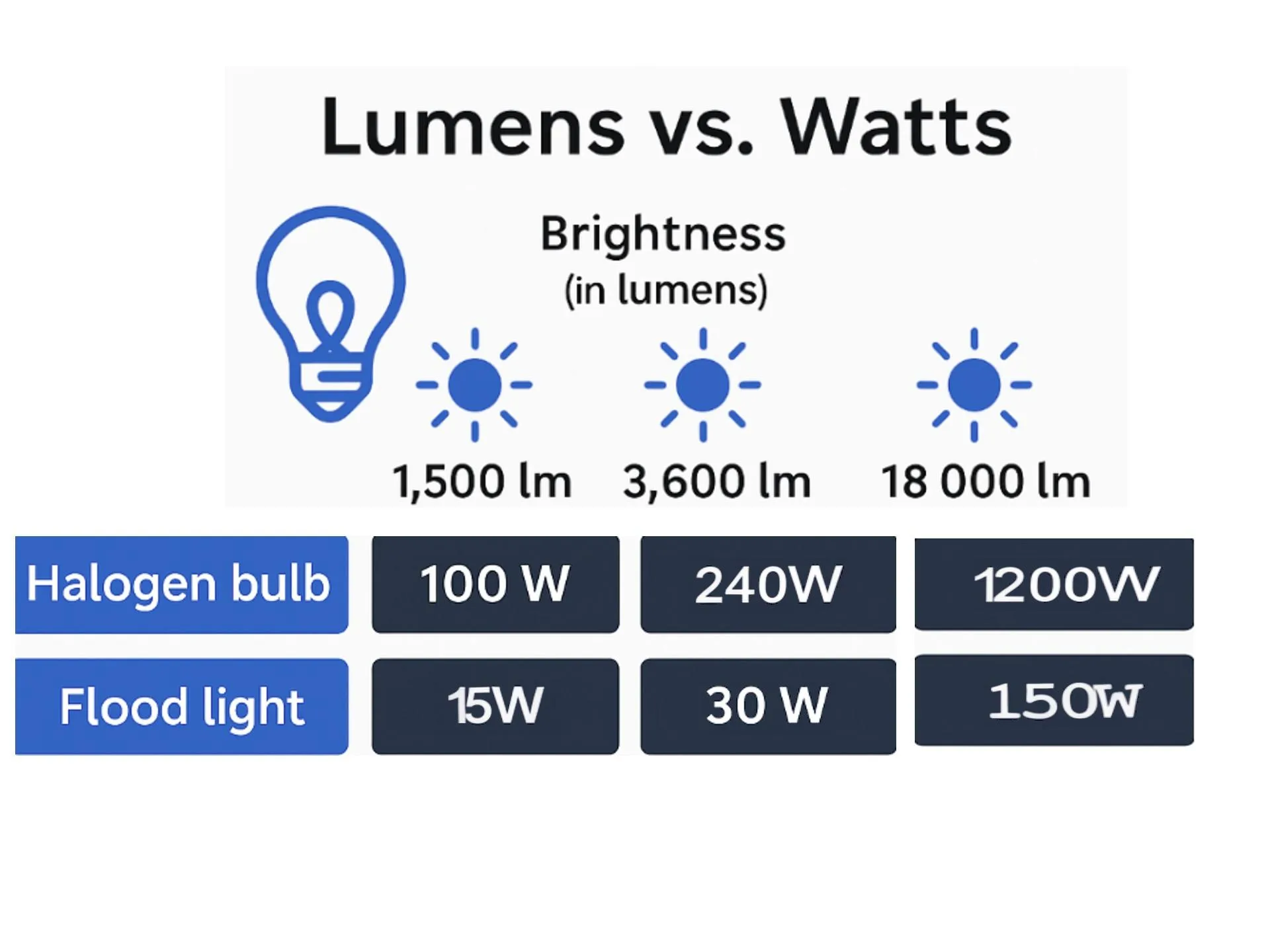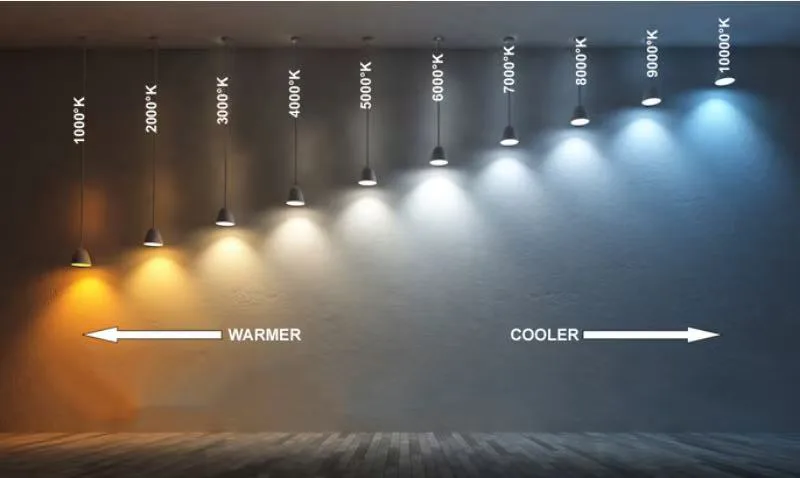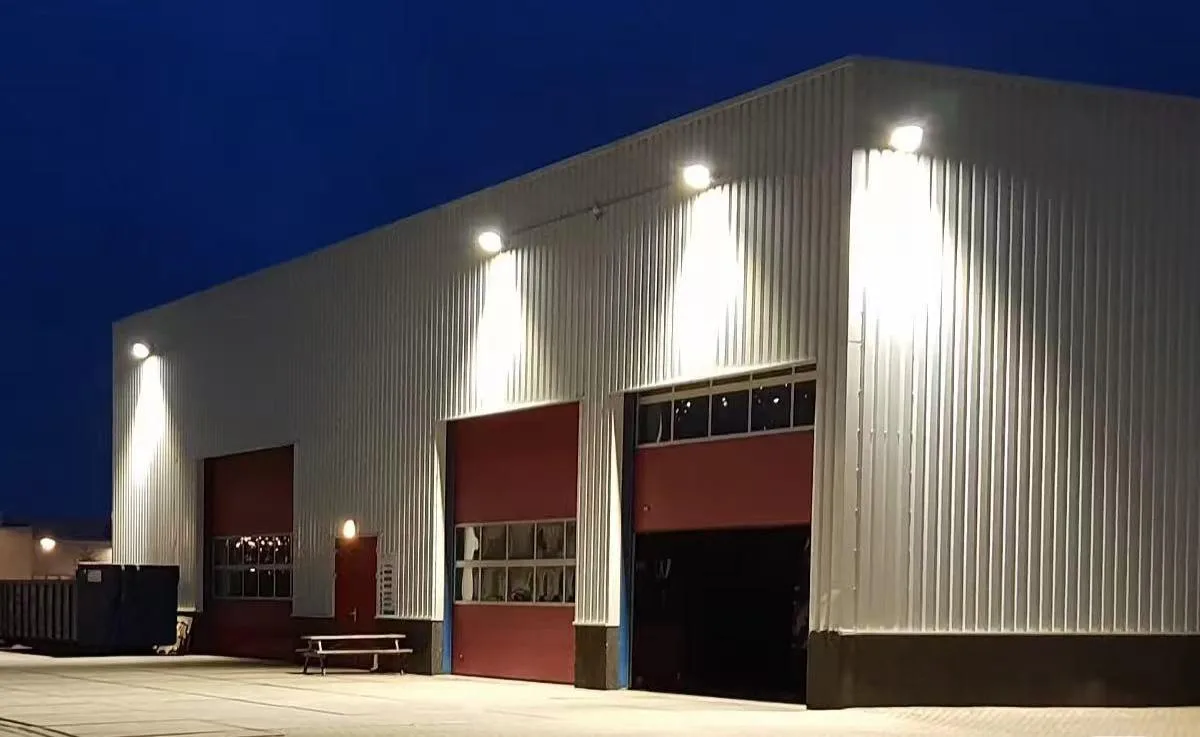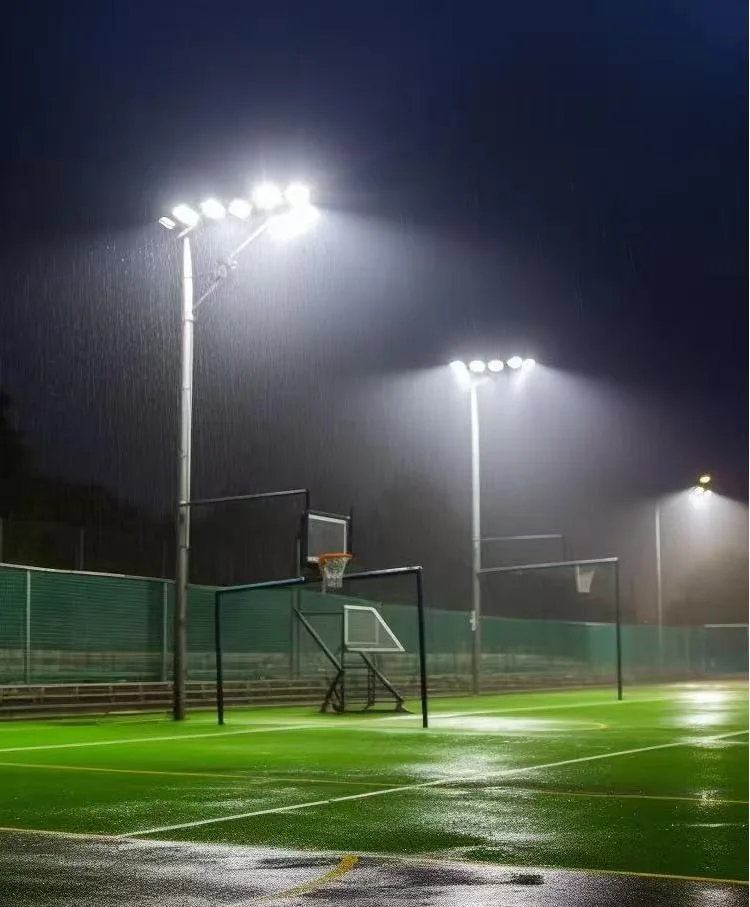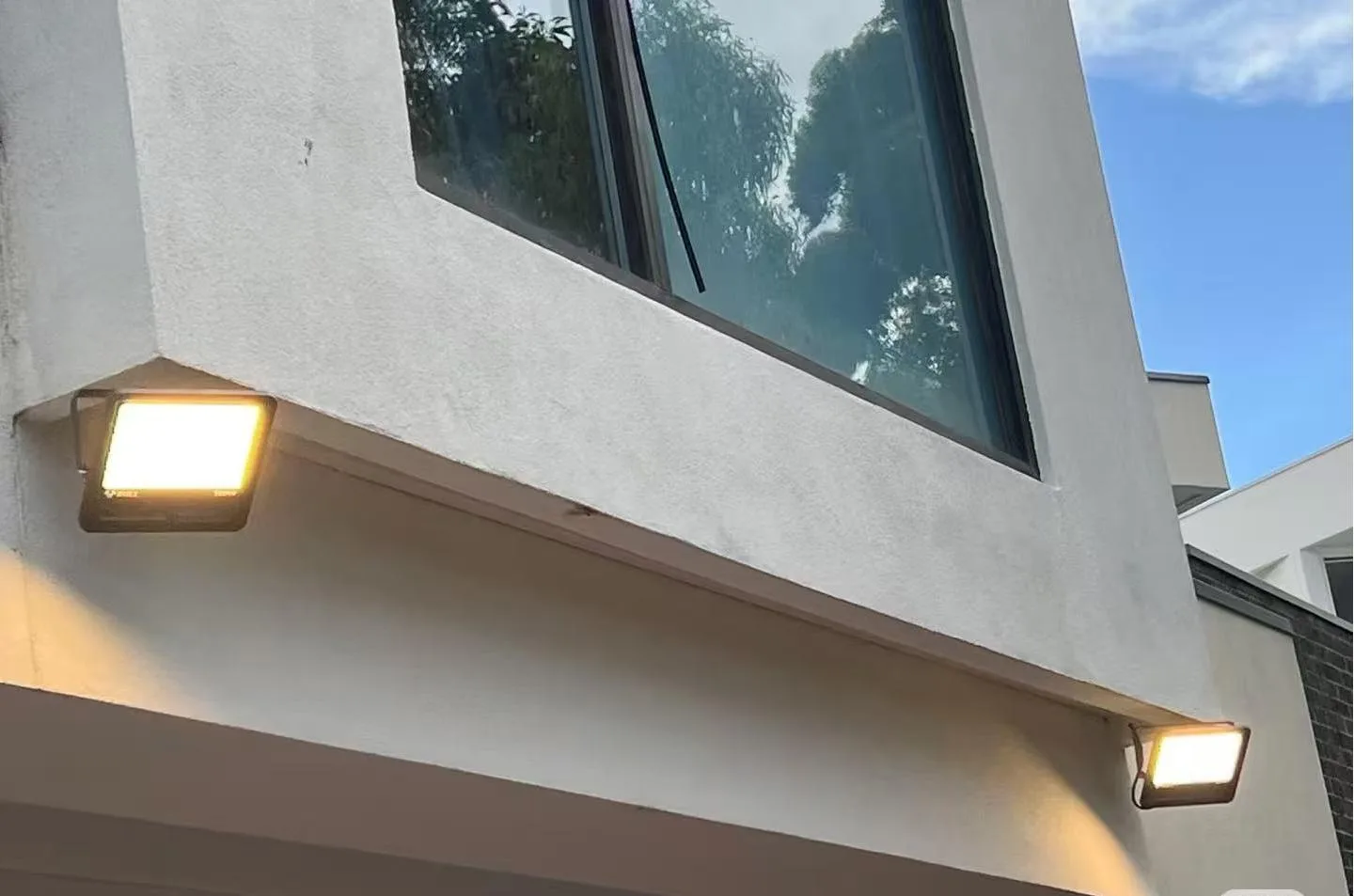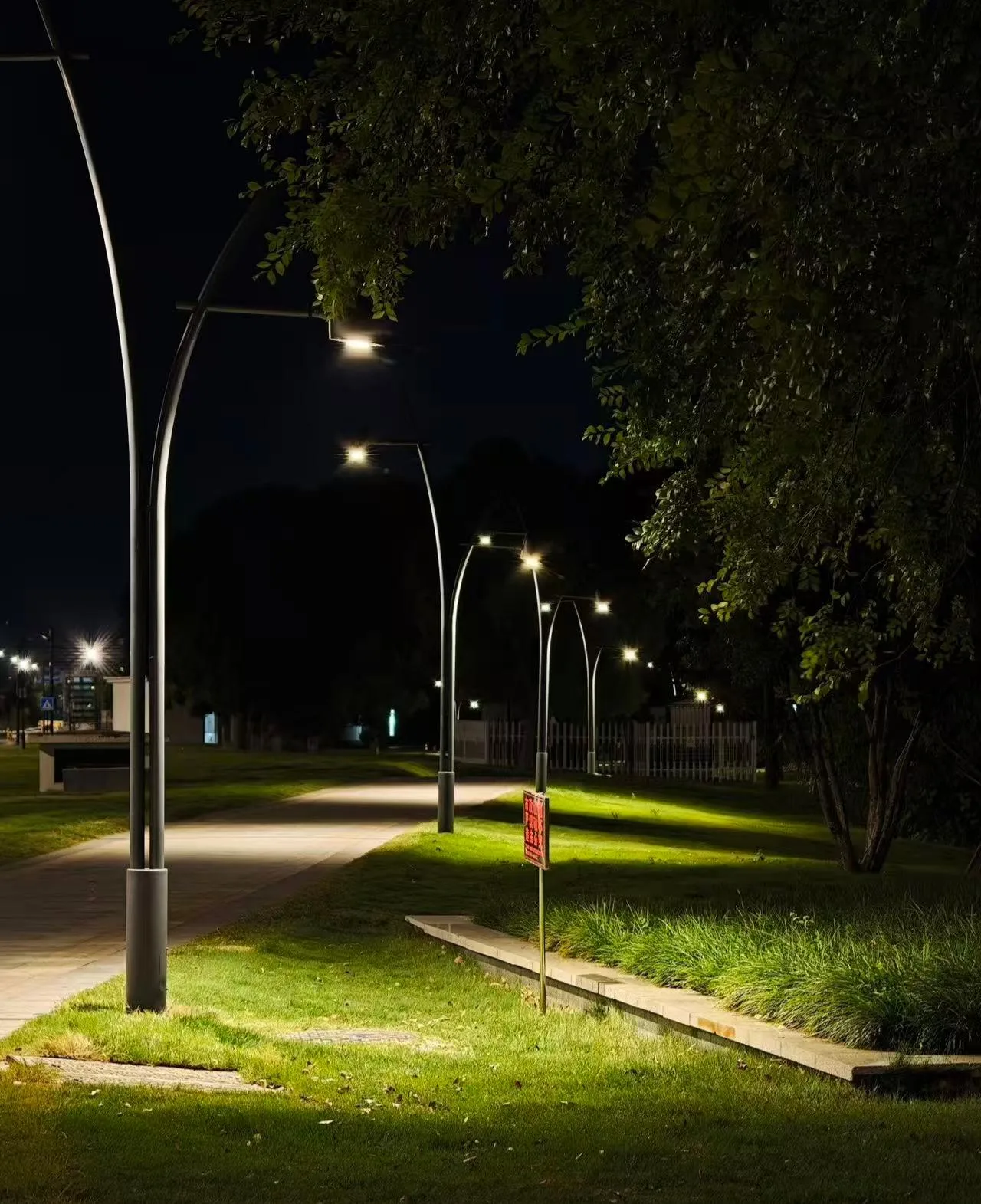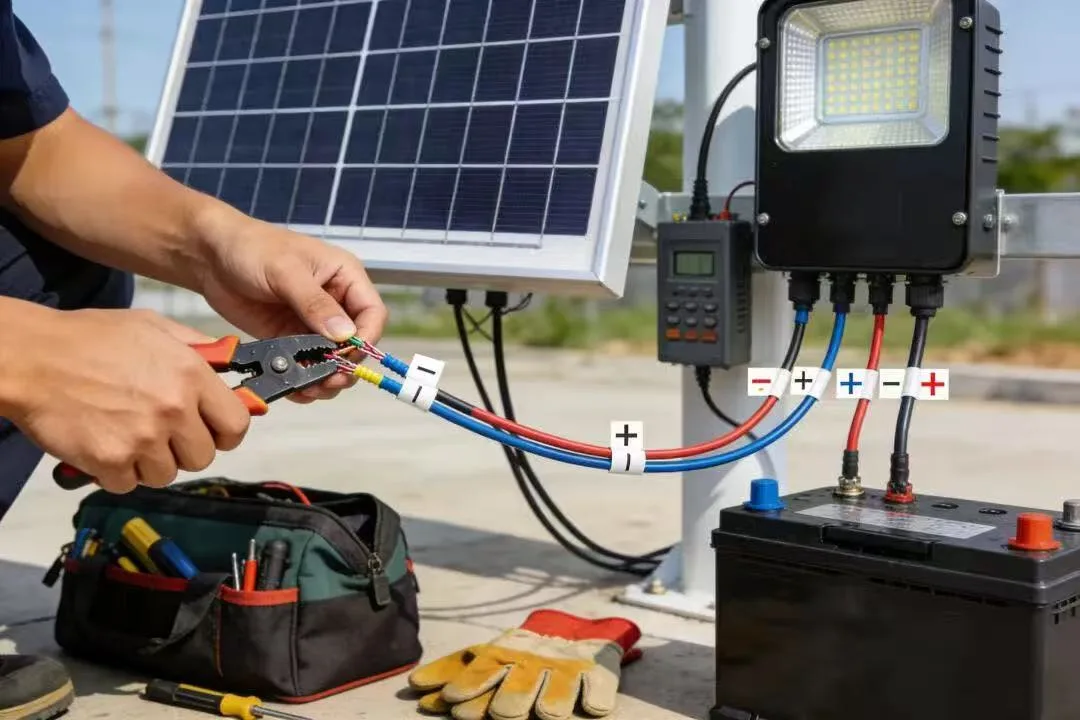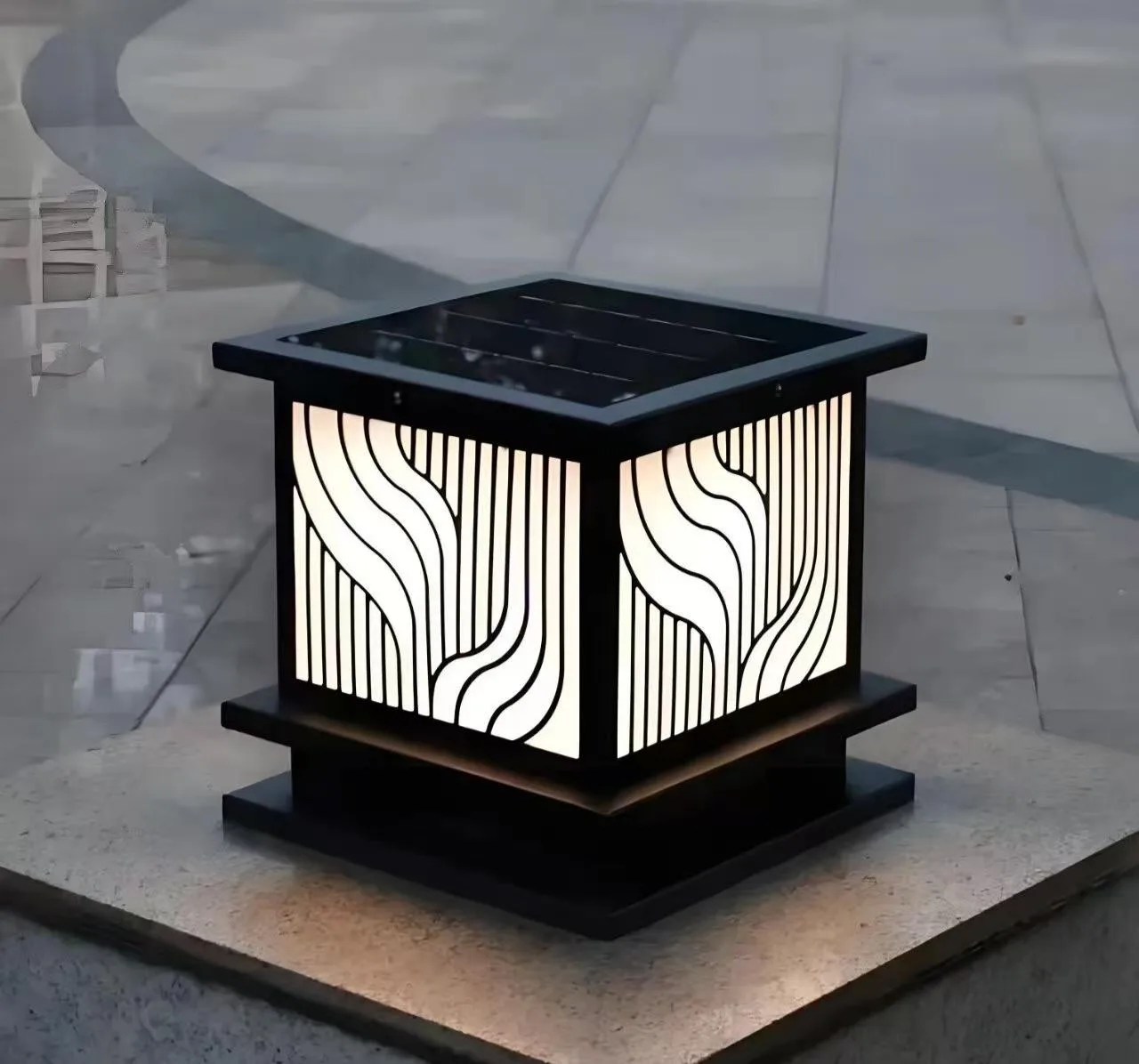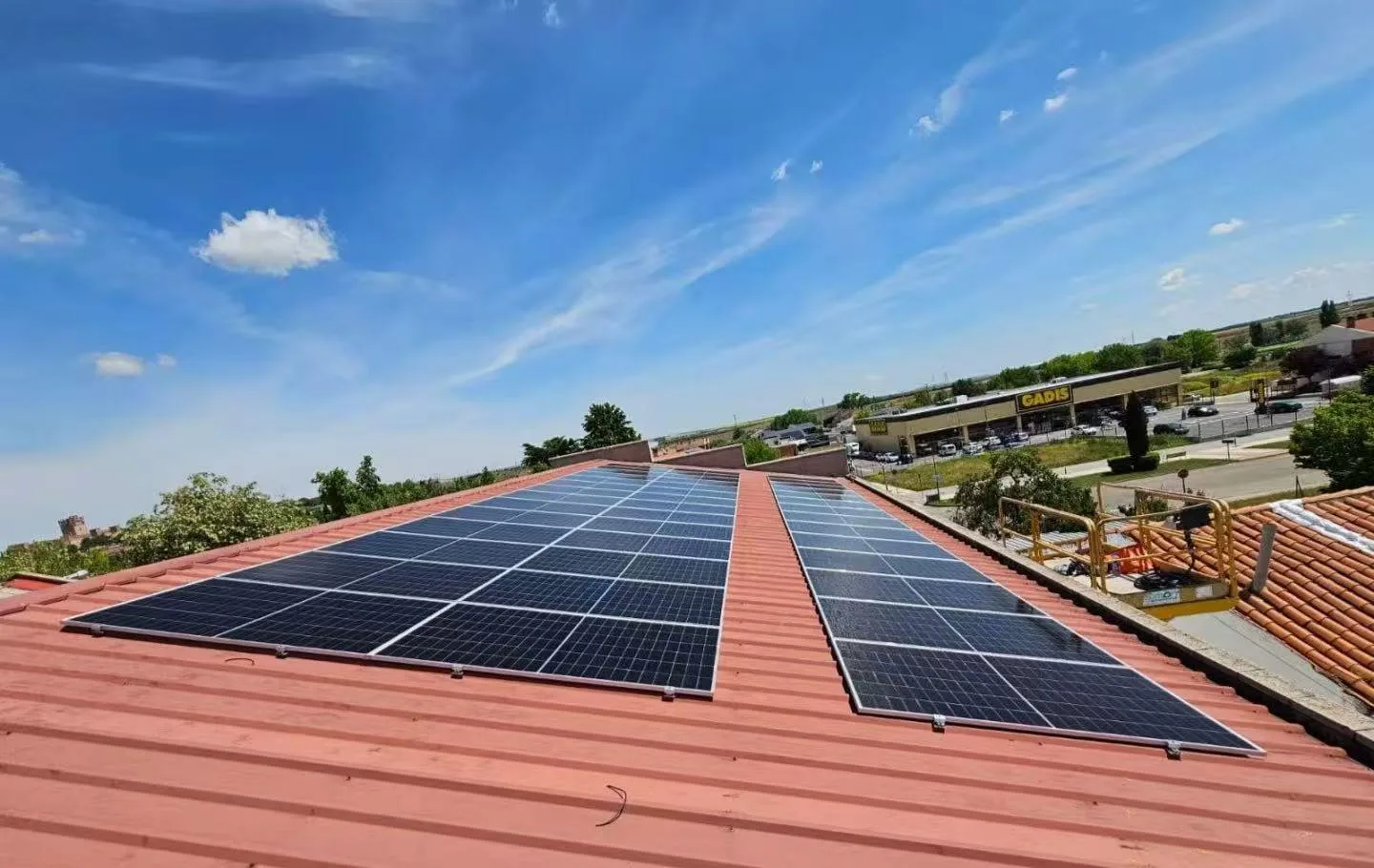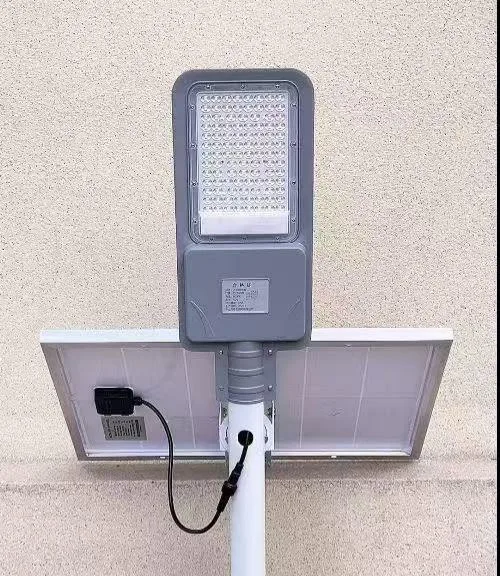Lighting an outdoor area isn’t just about being bright — it’s about making things clear, safe, and efficient. Whether you’re lighting a driveway at home or planning lighting for a big commercial building, knowing how many lumens you need for outdoor flood lights helps you get better visibility and long-term savings. This easy guide from LinkLights shows how to choose the right led light flood — explaining watt-to-lumen conversion, light design basics, beam angles, and energy-saving choices like outdoor solar flood lights, outdoor motion sensor flood lights, and smart outdoor flood lights.
Understanding Lumens vs Watts
What Are Lumens?
Lumens (lm) measure the total visible light output of a source. The higher the lumens, the brighter the light appears.
A 100 W halogen bulb ≈ 1 500 lm
A 30 watt flood light ≈ 3 600 lm
A 150 watt flood light ≈ 18 000 lm
Modern floodlights deliver 100–150 lm/W depending on chip efficiency and optics.
Why Watts Alone Mislead
Watts indicate energy consumption, not brightness. Two lights of equal wattage can produce vastly different illumination levels depending on efficacy (led light lumens per watt). For example:
| Light Type | Power (W) | Typical Lumens | Efficacy (lm/W) |
| outdoor halogen flood light | 150 W | 2 400 lm | 16 |
| metal halide flood light | 150 W | 13 500 lm | 90 |
| LED Flood Light | 150 W | 18 000 lm | 120 |
Hence, lumen output per watt is the real benchmark for modern outdoor flood lights.
Key Factors That Determine How Many Lumens You Need
Lighting an outdoor area isn’t just about being bright — it’s about providing the right amount of lumens for each environment.
Different spaces demand different illumination levels depending on their purpose, mounting height, ambient light, and beam optics.
This section helps you calculate and visualize the lumen levels that best fit your project.
Lighting Purpose
Security flood lights: need strong vertical illumination (2 000–10 000 lm).
Landscape flood light: typically accent lighting (400–1 500 lm).
Driveway flood lights: moderate beam for visibility (1 000–3 000 lm).
Commercial led flood lights or loading bays: higher lumen density (10 000–30 000 lm).
Area Size and Mounting Height
The higher the light, the more lumens you’ll need to maintain proper lux levels (brightness per square meter).Mounting angle and beam width directly affect how highly-efficient light covers the target area.
| Mounting Height | Recommended Beam Angle | Typical Lumens |
| 2 – 3 m (garden / path) | 60–90° | 700–1 500 lm |
| 4 – 6 m (driveway / wall) | 60° | 2 000–5 000 lm |
| 8 – 12 m (warehouse / yard) | 30–60° | 10 000–20 000 lm |
| 15 m + (stadium / façade) | 15–30° | 30 000 lm + |
Design note:When mounting higher, narrow the beam (30°–60°) to concentrate light and maintain sufficient lux on the ground.Wider beams (90°) are better for short poles or open landscapes.
Ambient Light, CCT, and Optical Design
Urban areas with street lighting may need fewer lumens than rural or unlit spaces. Always evaluate background brightness before specifying lumen levels.
Color Temperature (CCT)
Cool white (5000–6000 K): Appears brighter and sharper — ideal for security or commercial zones
Warm white (2700–3500 K): Softer and more natural — perfect for landscape or residential areas.
Optical Design
Lens Material: PMMA or PC lenses improve light transmission and durability.
Uniformity: Well-designed optics ensure balanced brightness without hot spots.
Glare Control: Essential for areas with cameras or pedestrians.
Recommended Lumen & Wattage Chart
The table below summarizes practical lumen ranges for various applications.
| Application | Typical Lumens | Suggested Wattage (LED) | Notes |
| Front porch / patio | 500 – 1 000 lm | 8 – 10 W | Decorative / pathway use |
| Garden or landscape flood lights led | 700 – 1 500 lm | 10 – 15 W | Highlight trees or sculptures |
| Driveway / parking space | 1 500 – 3 000 lm | 15 – 25 W | Safety and visibility |
| Backyard / small yard flood light | 2 000 – 5 000 lm | 20 – 40 W | General illumination |
| Warehouse / workshop exterior | 8 000 – 15 000 lm | 60 – 100 W | Operational lighting |
| Building façade lighting | 10 000 – 25 000 lm | 100 – 200 W | Uniform vertical lighting |
| Stadium or sports field | 30 000 – 100 000 lm | 200 – 1000 W | High-mast or multi-fixture systems |
Pro Tip: When designing multiple-fixture layouts, use the total lumens per area method (lux = lumens / m²). For general security, target 20–30 lux; for high-activity zones, aim for 50–100 lux.
Choosing the Right Type of led flood light for outdoor (By Application & Specification)
To choose the right led lighting outdoor flood light, you need to know its type and key features.For homes, driveways, or large buildings, a super bright led flood light gives the best mix of brightness, strength, and energy savings.
LED Flood Light Categories and When to Use Them
Standard led flood lights
This type of light is often used around buildings, signs, and parking areas.
It gives bright light while using little power (about 130 lumens per watt).
Its IP65–IP67 housing keeps out rain and dust.It works well for driveways, walls, and building fronts.
Solar floodlight
These exterior flood lights use built-in solar panels and batteries, so they need no electricity from the grid.They are easy to install—no digging or cables required.Each light should give at least 1 000 lumens for small or medium spaces.They are great for rural or off-grid areas and eco-friendly projects.
Many models include motion sensors or dusk-to-dawn controls for better power use.
Exterior flood lights with motion sensor
These lights turn on only when something moves nearby.They use PIR or microwave sensors to save up to 80% of energy.Most models can sense motion from 5 – 12 meters away.They are great for outdoor led security lighting, garages, and building entrances.
Smart & Dimmable Flood Lights
These wireless flood lights can connect by Bluetooth, Zigbee, or DALI-2.You can control brightness or turn them on and off by phone or computer.They fit large buildings or smart-city systems.They can dim automatically and report when maintenance is needed.
Outdoor portable flood lights
These lights are rechargeable and light-weight.They work well for temporary jobs, workshops, or emergencies.You can move them easily and set them up fast.Each light gives about 800 – 3 000 lumens, depending on the task.
Key Selection Criteria (Engineering & Specification Checklist)
When evaluating different flood light models, engineers and procurement teams should verify the following parameters:
Flood Light Selection Checklist
| Criteria | Recommended Level | Why It Matters |
| Brightness | Match the lumen output to your target lux | Gives enough light without glare |
| Efficiency | At least 120 lm/W | More light for less power |
| IP Rating | IP65 for outdoors; IP67 near the sea or dusty areas | Keeps out water and dust |
| Color Temperature (CCT) | 3 000 K – 6 000 K | Warm = cozy look; Cool = bright and safe |
| CRI (Color Rendering Index) | 80 or higher | Shows true colors and helps camera image quality |
| SPD (Surge Protection) | 10 kV or higher | Protects from power surges or lightning |
| Housing Material | ADC12 die-cast aluminum | Strong and rust-resistant |
| Optics | PMMA / PC lens | Shapes the light beam and reduces waste |
| Warranty | 3–5 years | Proves the product is reliable |
| Certifications | CE / RoHS / UL / IES / LM-79 | Meets safety and quality standards |
Application Summary
| Application | Recommended Type | Typical Lumens |
| Driveways / Entrances | Standard or Motion Sensor | 1 000–3 000 lm |
| Gardens / Landscaping | Solar or Standard | 500–1 500 lm |
| Security Perimeter | Motion Sensor or Smart | 2 000–10 000 lm |
| Commercial Façades | Standard or Smart | 10 000–30 000 lm |
| Remote / Off-Grid Sites | Solar Flood Lights | 1 000–5 000 lm |
| Temporary Work Areas | Portable Flood Lights | 800–3 000 lm |
Internal links: explore solar flood lights, motion sensor flood lights, and exterior LED flood lights from LinkLights for detailed specifications and project support.
Professional Design, Installation & Standards
Photometrics · Thermal · Protection · Controls
Photometrics Planning:Good exterior flood lighting starts with photometric planning.Designers use IES or EN13201 software to check brightness, uniform light, and low glare (UGR < 25).
Suppliers should provide IES files, LM-79 / TM-21 data, and polar curves when bidding for projects.
Thermal Management:Use strong aluminum housings such as ADC12 or 6063 die-cast.Fin-type heat sinks help keep the outdoor lighting floodlight cool.Keep the LED’s junction temperature below 85 °C so it can last more than 50 000 hours.
Ingress Protection & Durability:Choose exterior flood lights rated IP65 or higher to stop water and dust.In coastal or factory areas, use anti-corrosion coating and SPD ≥ 10 kV for surge protection.Pick lights with IK08–IK10 impact ratings for extra strength.
Driver & Control Systems:Use trusted drivers such as Mean Well, MOSO, or Sosen to keep power steady.Support 0–10 V dimming, DALI, photocell, or motion-sensor control for flexible use.
Mounting and Positioning
Angle: Aim 15°–45° to balance coverage and minimize glare.
Spacing: Overlap beams by 10–15 % for even light distribution.
Color Uniformity: Maintain consistent CCT (≈ 4000 K neutral white) across the site.
Safety: Use outdoor-rated cables, waterproof connectors, and ensure metal housings are grounded
Visual Comfort & CRI
Select CRI ≥ 80 for accurate color rendering; anti-glare optics improve comfort for pedestrians and surveillance cameras.
Internal link: explore waterproof outdoor LED flood lights and high-lumen flood lights.
Regulations and Standards to Consider
B2B buyers and lighting engineers should ensure conformity with international and regional standards:
| Region | Standard | Scope |
| Europe | EN 13201 | Road and outdoor area lighting performance |
| USA | IES RP-8 / RP-20 | Roadway and parking lot illumination |
| Global | IEC 60529 | IP rating (dust & water protection) |
| CIE | CIE 115 | Lighting for outdoor workplaces |
| China | GB 7000.203 | LED luminaire safety requirements |
Conformance ensures consistent brightness, color stability, and safety compliance in professional tenders.
Energy Efficiency, Smart Trends & ROI
From Watts to Savings
Switching from halogen or metal halide to LED saves 60–80% energy.
Example:
| Lighting Type | Power | Use Time | kWh Saved | Payback |
| 400 W MH → 150 W LED | 10 h/day | ≈ 3,650 h/year | ≈ 900 kWh | ≈ 1.8 years |
exterior led floodlights also save money on maintenance.
They last over 50,000 hours, so you replace them less often.
Sustainability & Carbon Reduction
Using less power means lower carbon emissions.
solar exterior flood lights can run at net zero energy over their lifetime.
This supports green building and ESG goals for companies.
Solar & Smart Integration
Solar systems now use MPPT controllers and LiFePO₄ batteries to stay reliable, even for high-brightness projects.
Smart networks like LoRa, NB-IoT, or Bluetooth Mesh let users control many lights at once.They allow auto dimming and predictive maintenance, reducing cost and emissions.These systems fit perfectly in smart city and industrial automation projects.
ROI & Long-Term Value
Outdoor floodlights led use little energy, need less service, and last a long time.Most commercial users see a payback within 2–3 years.
High efficiency (≥120 lm/W) means strong light and solid financial return.
Summary & Key Insights
LEDs save 60–80% energy compared to old lamps.
Payback: usually under 2 years.
Lifespan: over 50,000 hours with low maintenance.
Solar & Smart Control: improve energy use and monitoring.
Sustainability: supports ESG and reduces carbon impact.
Common Mistakes to Avoid
Using too many lumens → energy waste and glare.
Mixing color temperatures → uneven look.
Ignoring beam spread → bright center, dark corners.
Skipping SPD surge protection → driver failure and higher cost.
Using indoor lights outside → early damage.
Case Example: Upgrading a Commercial Driveway
A logistics company replaced twelve 400 W metal-halide lights with twelve 150 W LinkLights LED flood lights (18 000 lm each).
Results:
Energy saving: 65% (from 57 kWh → 20 kWh/day)
Light uniformity: improved from 0.4 → 0.65
Payback: less than 2 years
Maintenance: reduced by over 80%
FAQ
How many lumens for a brightest flood light for backyard?
Between 1 500–5 000 lm, depending on area size and brightness preference.
Are battery operated flood lights bright enough for security?
Modern models offer 2 000–3 000 lm — sufficient for driveways and gates if battery capacity exceeds 30 Wh.
What is the brightest led flood available?
Industrial-grade units can exceed 100 000 lm with multiple high-power modules.
How long do LED flood lights last?
A: Typical L70 lifespan = 50 000 – 100 000 hours (~ 10 years of daily use).
What color temperature suits security lighting?
A: 5000 K cool white offers maximum visibility for cameras and human perception.
Why Choose LinkLights
With over ten years of OEM and ODM work, LinkLights provides complete outdoor lighting solutions built by real engineers.Our team offers custom lighting design with IES or DIALux, and uses tested drivers from Mean Well and MOSO for steady performance.Each light has a die-cast aluminum body with IP67 and IK10 protection, plus 10 kV surge safety.All products follow EN 13201, IES RP-8, and CIE 115 standards.
They come with a 5-year warranty and global shipping support.
Explore our full range of LED flood lights, solar flood lights, security flood lights, smart flood lights, and outdoor LED street lights.
Final Thoughts
Lighting outdoor spaces is both science and design.
Choosing the right lumens gives clear, safe, and pleasant light — without glare or waste.
Whether it’s for a city project or a commercial site, LinkLights can help you plan and supply energy-saving LED flood lights that meet your needs and local rules.
Contact LinkLights lighting engineers for a custom lumen plan and professional lighting design.

